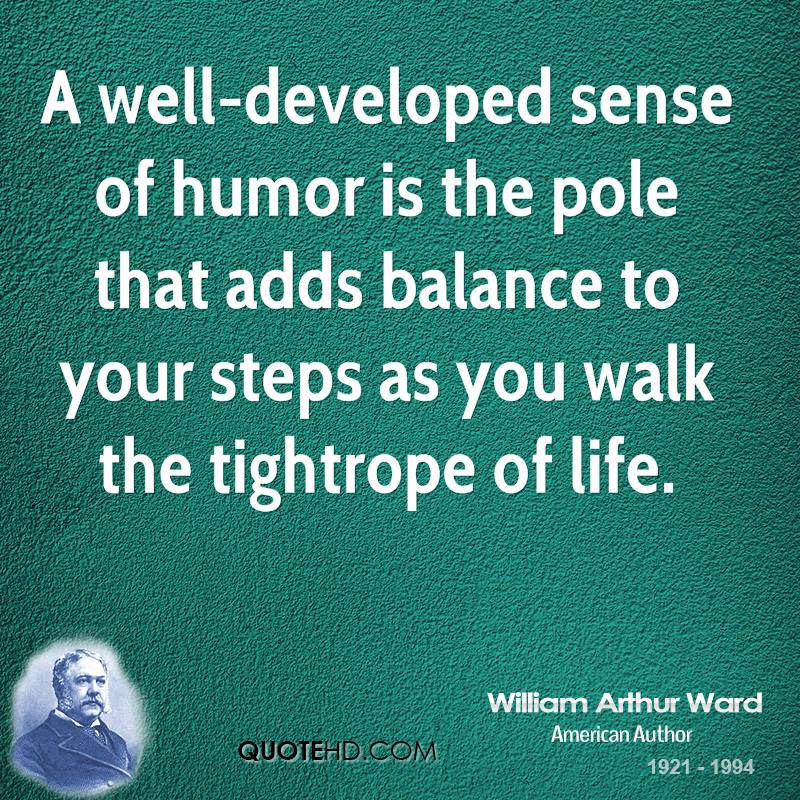What Is A Dry Sense Of Humor? Unlocking The Art Of Subtle Wit
Ever heard someone say, "Oh, they’ve got a real dry sense of humor!" and thought, "Wait, what does that even mean?" Well, let me break it down for you, my friend. A dry sense of humor is like the cool cousin in the comedy family—it doesn’t scream for attention but still manages to steal the spotlight. It’s witty, understated, and often leaves you laughing long after the punchline has passed. And trust me, once you get it, you’ll be hooked.
Now, before we dive deep into the world of dry wit, let’s acknowledge one thing: humor is subjective. What cracks you up might leave someone else scratching their head. But there’s something about dry humor that transcends boundaries. It’s not loud, it’s not slapstick, and it’s definitely not over-the-top. Instead, it’s a clever play on words or a deadpan delivery that makes you chuckle in the most unexpected ways.
So, why does dry humor matter? Because it’s more than just a way to make people laugh—it’s a reflection of personality, intelligence, and even cultural nuances. Whether you’re trying to understand it, embrace it, or simply appreciate it, this article has got you covered. Let’s jump right in and explore what makes a dry sense of humor so special.
Read also:Is Amanda Balionis Divorce A Reality Or Just A Rumor
Table of Contents
- What is a Dry Sense of Humor?
- Traits of Dry Humor
- Examples of Dry Humor
- How Dry Humor Differs from Other Types
- Cultural Impact of Dry Humor
- How to Develop a Dry Sense of Humor
- Famous People with Dry Humor
- The Psychology Behind Dry Humor
- Benefits of Having a Dry Sense of Humor
- Why Dry Humor is Often Misunderstood
What is a Dry Sense of Humor?
Alright, so what exactly is a dry sense of humor? Picture this: someone walks into a room wearing sunglasses indoors, and instead of making a big deal out of it, they casually say, “Oh, just protecting my eyes from the harsh reality of this place.” That’s dry humor for you—subtle, clever, and delivered with a straight face.
A dry sense of humor is all about understatement. It’s the kind of humor that relies on timing, tone, and sometimes even silence. Unlike slapstick comedy or sarcasm, dry humor doesn’t rely on exaggeration or obvious cues. It’s more about what’s implied rather than what’s said outright. Think of it as the comedy equivalent of a wink—you might not notice it right away, but when you do, it’s pure gold.
But here’s the kicker: dry humor isn’t for everyone. Some people get it instantly, while others need a little time to catch on. And that’s perfectly fine! The beauty of dry humor lies in its ability to connect with those who truly appreciate it.
Defining Dry Humor
Let’s break it down further. Dry humor is often described as humor that’s delivered in a matter-of-fact way, without any attempt to emphasize the joke. It’s the opposite of over-the-top antics or loud gags. Instead, it’s a quiet, confident form of comedy that trusts the audience to “get it.”
For example, if someone says, “I’m on a seafood diet. I see food, and I eat it,” that’s dry humor at its finest. No flashy delivery, no exaggerated expressions—just a simple statement that’s both absurd and hilarious if you think about it.
Traits of Dry Humor
Now that we’ve defined dry humor, let’s talk about its key traits. What makes dry humor stand out from other types of comedy? Here are a few characteristics to keep in mind:
Read also:Actress In 60s The Glamorous Icons Who Redefined Hollywood
- Deadpan Delivery: This is the hallmark of dry humor. It’s all about saying something funny without batting an eyelid.
- Subtlety: Dry humor doesn’t hit you over the head with jokes. Instead, it sneaks up on you and makes you laugh when you least expect it.
- Intellectual Wit: Dry humor often involves clever wordplay or observations that require a bit of thought to fully appreciate.
- Confidence: People with a dry sense of humor trust their audience to get the joke without needing extra explanations.
Think of it this way: dry humor is like a good wine—it’s best when it’s allowed to breathe and develop over time.
How to Recognize Dry Humor
So, how do you know if someone has a dry sense of humor? Here are a few signs to look out for:
- They use sarcasm sparingly but effectively.
- They often make jokes that seem like serious statements at first glance.
- They don’t laugh at their own jokes (because they’re too cool for that).
- They rely on context and timing to deliver their punchlines.
And let’s not forget the most important trait of all: patience. People with a dry sense of humor understand that sometimes the best jokes are the ones that take a moment to sink in.
Examples of Dry Humor
Let’s put theory into practice with some real-life examples of dry humor. Here are a few gems that perfectly capture the essence of this unique style:
- “I’m on a see-food diet. If I see food, I eat it.”
- “I’m not short. I’m just concentrated.”
- “I don’t suffer from insomnia. I just enjoy being awake at night.”
- “I’m not arguing. I’m just explaining why I’m right.”
See how these jokes work? They’re not in-your-face funny, but they’re clever enough to make you smile long after you’ve heard them. That’s the magic of dry humor.
Dry Humor in Pop Culture
Pop culture is full of characters who embody the art of dry humor. Think of Sheldon Cooper from “The Big Bang Theory” or Chandler Bing from “Friends.” These characters use dry wit to navigate their worlds, often leaving viewers in stitches without even trying.
And let’s not forget the classics like Steve Carell’s Michael Scott in “The Office” or Benedict Cumberbatch’s Sherlock Holmes. Their deadpan delivery and sharp observations make them some of the most memorable dry humor icons in television history.
How Dry Humor Differs from Other Types
Now that we’ve explored what dry humor is, let’s talk about how it compares to other forms of comedy. Here’s a quick breakdown:
- Sarcasm: Sarcasm is all about saying the opposite of what you mean, often with a hint of irony. Dry humor, on the other hand, is more subtle and doesn’t rely on overt irony.
- Slapstick: Slapstick humor is physical and exaggerated, while dry humor is verbal and understated.
- Black Humor: Black humor deals with dark or taboo subjects, whereas dry humor can cover a wide range of topics without necessarily delving into the heavy stuff.
Each type of humor has its own charm, but dry humor stands out for its ability to make people laugh without them even realizing it.
Dry Humor vs. Sarcasm
One of the most common misconceptions is that dry humor and sarcasm are the same thing. While they do share some similarities, they’re actually quite different. Sarcasm is more direct and often involves mocking or teasing, while dry humor is more subtle and relies on cleverness rather than aggression.
For example, a sarcastic comment might be, “Oh, great, another meeting. Just what I needed.” A dry humor version of the same sentiment might be, “I’m so excited for this meeting. It’s like a social event, but with less fun.” See the difference?
Cultural Impact of Dry Humor
Dry humor isn’t just a personal trait—it’s also a cultural phenomenon. Different cultures have their own takes on dry humor, and it can be a powerful tool for building connections across borders. For example, British humor is often associated with dry wit, while American humor tends to lean more toward slapstick and exaggeration.
But here’s the thing: dry humor transcends cultural boundaries. Whether you’re in London, Tokyo, or New York, a well-timed dry joke can bring people together and create a shared moment of laughter.
Dry Humor Around the World
Let’s take a quick trip around the globe to see how different cultures approach dry humor:
- UK: The British are masters of dry wit, often using it to navigate awkward situations with grace and humor.
- USA: American dry humor tends to be more self-deprecating, with a focus on poking fun at oneself.
- Australia: Australians have a knack for dry humor that’s both witty and irreverent, often poking fun at authority figures.
So, no matter where you are in the world, there’s a good chance you’ll encounter someone with a dry sense of humor. And trust me, it’s a joy to behold.
How to Develop a Dry Sense of Humor
Think you might have a dry sense of humor lurking inside you? Here’s how to bring it out:
- Practice Deadpan Delivery: The key to dry humor is delivering your jokes with a straight face. Practice in front of a mirror or with friends until it feels natural.
- Observe the World Around You: Dry humor often involves making clever observations about everyday life. Keep your eyes and ears open for inspiration.
- Be Patient: Not everyone will get your jokes right away, and that’s okay. Let the humor sink in and trust your audience to appreciate it eventually.
Remember, developing a dry sense of humor takes time and practice. Don’t be discouraged if it doesn’t come naturally at first. Like any skill, it gets easier with repetition.
Tips to Improve Your Dry Humor
Here are a few more tips to help you refine your dry humor:
- Read books and watch shows that feature dry humor to get inspiration.
- Experiment with different types of jokes to see what works best for you.
- Don’t be afraid to fail. Sometimes the best dry humor comes from unexpected places.
And most importantly, have fun with it! Dry humor is all about enjoying the little things in life and finding joy in the unexpected.
Famous People with Dry Humor
Throughout history, there have been countless individuals who’ve mastered the art of dry humor. Here are a few famous examples:
- Winston Churchill: The former British Prime Minister was known for his sharp wit and dry sense of humor. One of his most famous quips was, “Success is going from failure to failure without losing your enthusiasm.”
- David Letterman: The late-night talk show host was a master of dry humor, often using it to skewer celebrities and politicians alike.
- Stephen Fry: The British actor and comedian is renowned for his quick wit and dry delivery, making him a favorite among fans of intelligent humor.
These individuals prove that dry humor isn’t just for comedians—it’s a valuable skill that can be used in any context.
Article Recommendations


